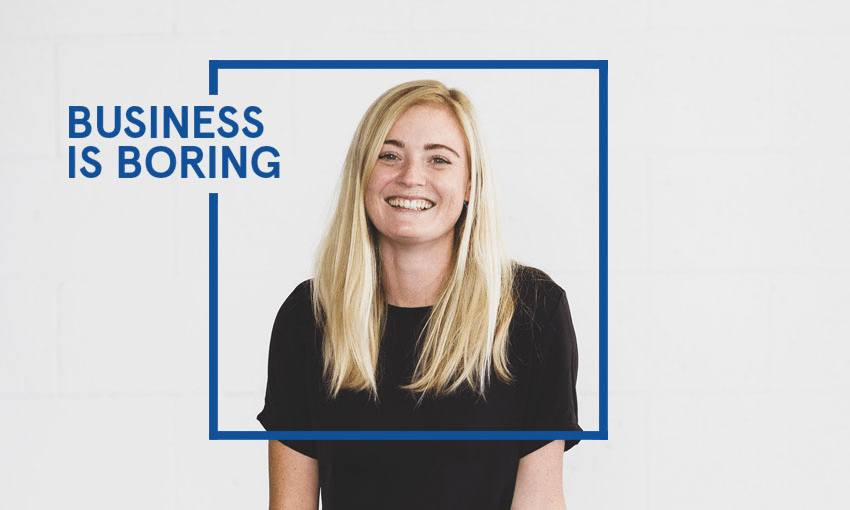Business is Boring is a weekly podcast series presented by The Spinoff in association with Callaghan Innovation. Host Simon Pound speaks with innovators and commentators focused on the future of New Zealand, with the interview available as both audio and a transcribed excerpt. This week, he talks to Georgia McGillivray about harnessing the power of social media influencers.
Influencer marketing is a huge change in media – one we might just be starting to understand the scale of.
The growth in social media has done some really interesting things, like open up new paths for creative people and those with a following or profile to go directly to their fans. In turn, that direct relationship has meant brands can go directly to individual content creators that are their own channel, editorial and creative production agency in one. We kind of take it for granted, and I think there’s quite a bit of underestimation that goes on for the stars of the medium, who are a savvy, shrewd and innovative force. It’s a big wave, and one that a local business picked early.
The Social Club was an early influencer agency founded in 2015, quickly growing to 14 staff to become the largest influencer marketing agency in the country. It connects influencers and brands using its own technology platform.
It was co-founded by Georgia McGillivray, who’d worked in advertising at some of the great networks around the world and saw where digital was heading. As CEO, she took the company through the Icehouse Flux programme and attracted series A capital from Sir Stephen Tindall, among other heavyweights.
Today they connect more than 5,000 influencers big and small with brands, helping people build their own profile on much their own terms. To talk about the journey, what makes for a good campaign, and where the space is at now and is heading, Georgia McGillivray joins us now.
Either download this episode (right click and save), have a listen below or via Spotify, subscribe through iTunes (RSS feed) or read on for a transcribed excerpt.
How did you go about starting the company. You saw there was a gap in the market – how did that lead to starting The Social Club?
At the time I was working in Melbourne at one of the big agencies and my co-founder Justin was back in New Zealand. He understood that the market was quite raw and immature in New Zealand and I’d been working in an agency hearing all of the pain points that the social team were going through so we got together with a group of friends and started thinking about how we could improve the market in New Zealand.
Did you approach the people with the biggest audiences and say you’d connect them to brands or did you need the brands before the influencers?
We did go to the influencers first. We were quite lucky that I’d worked with hundreds of influencers in the past and had strong relationships with them. What we did is we reached out and said ‘hey, this is what we want to do, what’s your feedback, is it something that you’d be interested in getting involved with?’ and very quickly we grew to about 250 influencers which was the biggest network in New Zealand at the time.
Then we went to the brands.
And how were those first conversations?
The first conversations with the brands were really positive. We were quite selective with who we went out to and made sure we were targeting innovative brands that we knew would be open to trying new things. They had the first move for advantage because not many people were doing it in New Zealand, or not many people were doing it well.
We had the opportunity to work closely with them and show them really good results first-time. The first campaign we ran was for Fullers Ferries, and that was quite fun.
How were the first results? Were there things that you as a team had to work on as well?
We weren’t expecting how uneducated the New Zealand market was going to be – so overseas when you reach out to an influencer they sort of know what they’re doing, they have their rates set. One of the big things we weren’t expecting was how much the rates would fluctuate, so because of that we developed an algorithm within our internal technology platform that helps calculate the worth of an influencer, similar to the tool we have on our website.
Is that to help set the influencer’s expectations as well as the market’s?
Yes, absolutely. Educating the influencers was as big a piece as educating the brands in the early days. It was quite unexpected.

